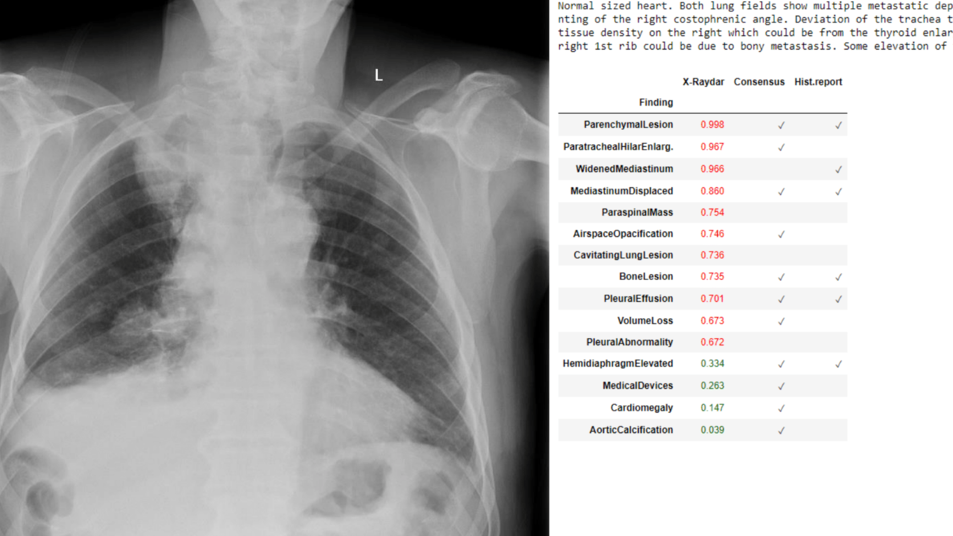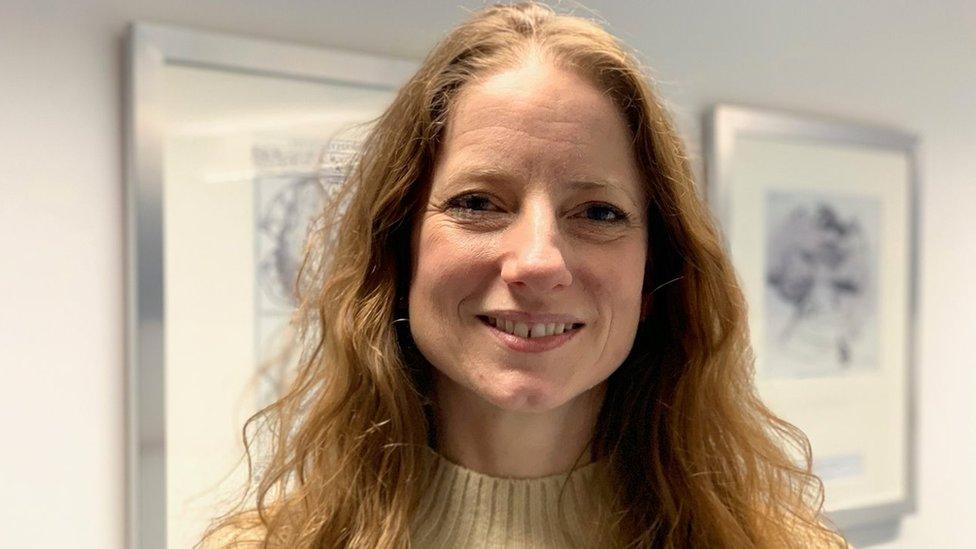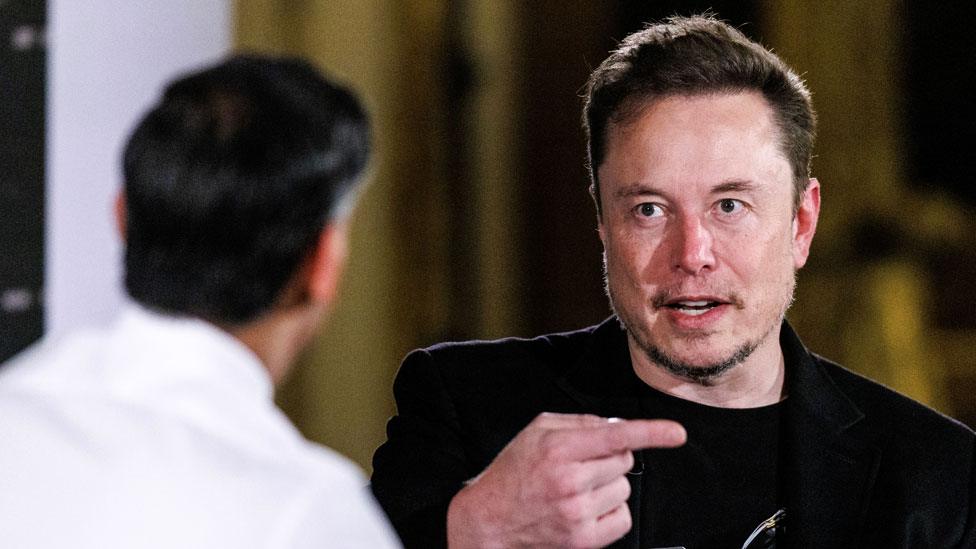AI as good as doctors at checking X-rays - study

The software for checking X-rays was trained using 2.8m images and highly accurate, researchers said
- Published
Artificial Intelligence (AI) can analyse X-rays and diagnose medical issues just as well as doctors, a study has claimed.
Software was trained using chest X-rays from more than 1.5m patients, and scanned for 37 possible conditions.
It was just as accurate or more accurate than doctors' analysis at the time the image was taken for 35 out of 37 conditions, the University of Warwick said.
The AI could reduce doctors' workload and delays in diagnosis, and offer radiologists the "ultimate second opinion", researchers added.
The software understood that some abnormalities for which it scanned were more serious than others, and could flag the most urgent to medics, the university said.
To check the results were accurate, more than 1,400 X-rays analysed by the software were cross-examined by senior radiologists.
They then compared the diagnoses made by the AI with those made by radiologists at the time.
'Future of medicine'
The software, called X-Raydar, removed human error and bias, said lead author, Dr Giovanni Montana, Professor of Data Science at Warwick University.
"If a patient is referred for an X-ray with a heart problem, doctors will inevitably focus on the heart over the lungs," he said.
“This is totally understandable but runs the risk of undetected problems in other areas".
AI such as this would be the "future of medicine" and act as a "co-pilot for busy doctors", said co-author, Professor Vicky Goh of King’s College London.
The AI X-ray tool was a collaboration between Warwick University, King’s College London and the NHS, and funded by the Wellcome Trust.
The software was available open source for non-commercial use to increase the pace of research development, the university added.
Follow BBC West Midlands on Facebook, external, X, external and Instagram, external. Send your story ideas to: newsonline.westmidlands@bbc.co.uk, external
Related topics
- Published7 December 2023

- Published3 November 2023

